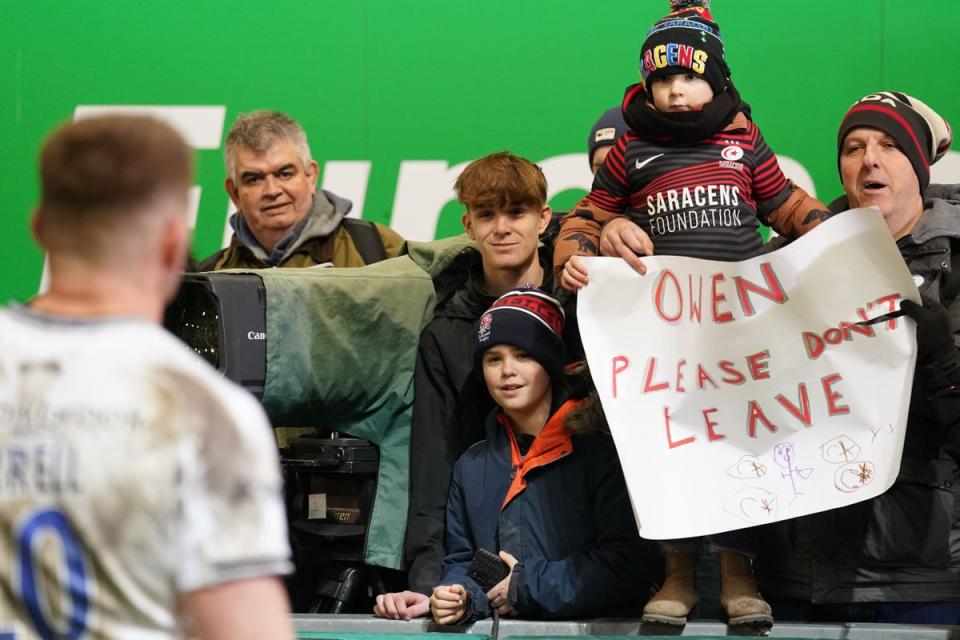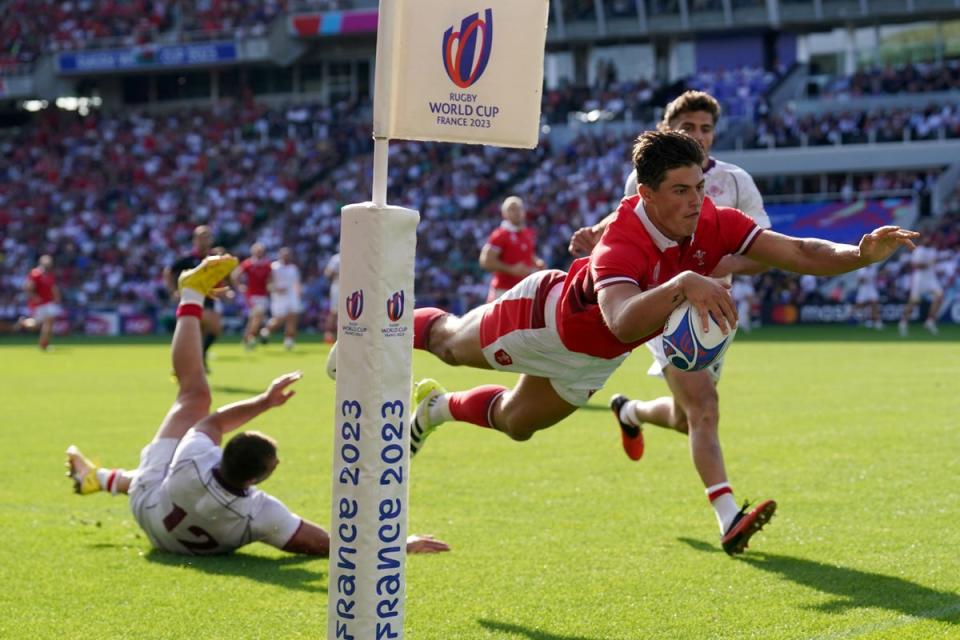One only needs to be a casual consumer of club rugby union to recognise that the winds of change are blowing. Owen Farrell has now indeed opted to join Racing 92, with the initial rumours coming as a bombshell, the idea of an English player contemplating a move from the Premiership Rugby to the Top 14 did not.
Farrell’s situation is different to most but moving across the Channel reflects the general direction of rugby’s labour migration. France’s Top 14 is now firmly established as the world’s top domestic league financially, with a bumper TV deal, buoyant crowds and a thriving structure beneath it sustaining professional clubs across three tiers.
Conversely, English club rugby has shrunk, with the loss of four clubs in 12 months highlighting the financial issues within the system, where the challenges of Covid have led to a depression of the salary cap. Proposals are on the table to lift the current limit on player spending from £5m per year back to the previous figure of £6.4m, but with most clubs recording major financial losses each season, a number are reluctant for the cap to rise again.

The league’s wealthiest benefactors, by contrast, have always been prepared to absorb more significant losses in pursuit of success and are pushing for a rise. While there is no obligation to spend up to the cap, clubs will look at some of the criticism that winless Newcastle Falcons have copped for understandably cutting their cloth and feel they must speculate to compete.
Either way, the current squeeze on contracts has left players seeking pastures new – and France’s Top 14 and Pro D2 possess the economic power to capitalise. Lewis Ludlam looks set to join Toulon next summer, while clubmate Courtney Lawes is a target for ambitious Provence up the road. Harlequins tighthead Will Collier is thought to be considering a sizeable offer from Castres.
The other developing market force is the arrival of east Asia as a significant player. Where once Japan’s Top League represented green pasture for those whose best days were behind them, it is now where many of the Rugby Championship’s highest-profile performers ply their trade.

Though tighter rules on the number of domestic players that must feature in Japan have prevented a raid so far, Japanese clubs are eyeing British players and can offer high wages and a less demanding schedule. Wales’s Louis Rees-Zammit was linked with a move to Japan before his move to walk away from rugby and attempt to make it in the NFL, while compatriots Liam Williams and Gareth Anscombe made the move post-World Cup, ruling them out of the Six Nations due to calendar conflicts. Away from the British contingent, Leicester were prepared to make South Africa’s Jasper Wiese one of their top earners but are believed to have lost out to a club in the Japanese third division.
Losing some players overseas can benefit both individuals and the structure as a whole, particularly for England. Curtis Langdon has returned from a short stint with Montpellier a more rounded, dynamic hooker, and could well add to his two caps this year, and an improved Zach Mercer is back in the Premiership after a productive period in the south of France.
While the Rugby Football Union (RFU) were disappointed that Henry Arundell turned down an enhanced EPS deal to remain at Racing 92, Stuart Lancaster is an outstanding talent developer who should get the best out of a 21-year-old who has not played much senior rugby. Borthwick is hopeful to have Arundell back available ahead of the 2027 World Cup.

Structurally, there can be a talent upfill if the pathway is producing players in the way a country like England should. Exeter are flying in the Premiership having bid farewell to Jack Nowell, the Simmonds brothers and a host of other key figures in a summer exodus. In their places, fresh faces have risen to the challenge; a number are now on Steve Borthwick’s radar.
Wales are in a more complex situation than their neighbours. Where English clubs are struggling to match those able to offer above and beyond commensurate salaries, the four Welsh URC clubs are struggling to even match market value. While Wales has always produced players at an impressive rate per capita, the realities of a smaller population and player base mean that continued trimming of top talent feels unsustainable. Cardiff, the Scarlets and the Dragons are all in the bottom five of the URC this season, though the Ospreys are outperforming their budget.
Tomos Williams, a stalwart at Cardiff, is joining Gloucester, Joe Hawkins is at Exeter and Mason Grady is being connected with a move to Bath, with many players favouring a short hop across the Severn rather than a major relocation and West Country clubs all too happy to pay sticker price for the quality on offer.

It makes the two nations’ future approach to overseas-based players fascinating. The 60 caps required to be eligible for Welsh selection when based overseas has already been reduced to 25; if more and more decide the grass is greener in more financially fertile territories, it is not hard to envisage another revamp that will see any Welshman based anywhere with any number of caps available to Warren Gatland. The ramifications for the URC clubs already struggling to retain players would be significant – but perhaps necessary to avoid the degradation of a national team that sustains the sport.
Such a move feels more unlikely in England – Borthwick was clear earlier this month that there is little prospect of the RFU abandoning their policy on overseas players in the immediate future. The thought still is that there is enough talent emerging to sustain the Premiership, with encouraging results in the Champions Cup reflecting this. A deconflicted club/country calendar is also likely to bring a general reduction in squad sizes in the English top flight from next season onwards, which may allow clubs to devote more resources to matching offers from France and keep top earners in the Premiership.
But many will recall the howls about the continued exclusion of Toulon’s Steffon Armitage amid the nebulous “exceptional circumstances” policy at a time when England were short of openside flankers. If Farrell, or another key figure, is now starring in France while England struggle, will the RFU feel compelled to reconsider their stance? The shifting sands of club rugby could yet leave them on unsteady ground.
Article courtesy of
Source link